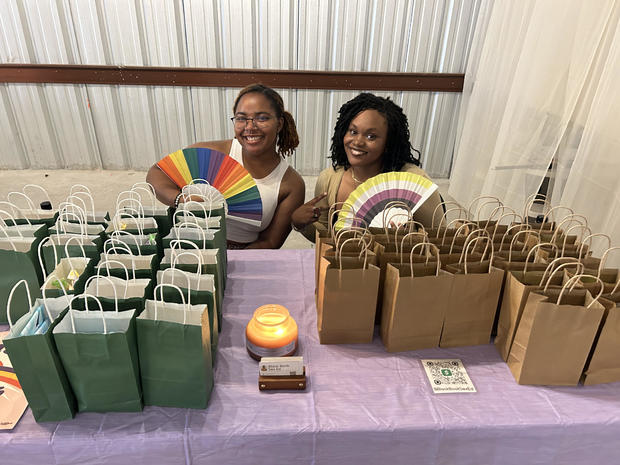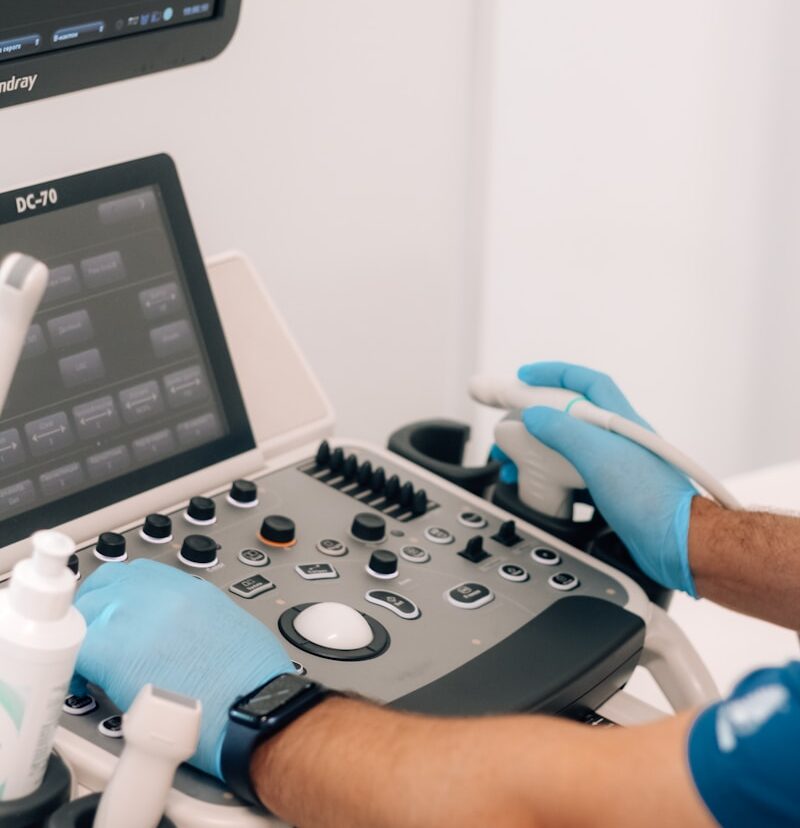Two Undergrads Quietly Solve the “I-don’t-have-it-right-now” Problem
UTSA walkway turns into mini-wellness hub twice a month
Every other Thursday, Limya Harvey and Cydney Mumford arrive before the first class change, flip open a card-table, and begin stacking neat columns of small, unmarked pouches. Within sixty minutes the table is bare—no leftover Plan-B, no stray condoms, not even a single tampon. The pair restocks anyway, because a second tide of students always surges past after Chemistry lets out.
Behind the fleeting scene sits a year-old nonprofit, Black Book Sex Ed, founded when both women were still teenagers juggling final exams.
Where the Idea Started
- Shared reality: Both Harvey and Mumford grew up counting quarters for pads.
- Shared frustration: High-dollar campus vending machines, but no free options.
- Quick fix: If no one else would hand them out, they would.
What Goes in Each Pouch
| Emergency Health Pouch | Period Care Pouch |
|---|---|
| 1 levonorgestrel tablet 2 ultra-thin condoms 1 travel-size lube sachet |
4 tampons 3 overnight pads 2 pair disposable underwear |
They bring fifty of each flavor; the supply evaporates “somewhere between the Spanish review session and the library,” Harvey jokes.
Not a Pop-Up—an Infrastructure
Campus
They rotate between the breezeway outside the athletic complex and the shaded concrete slab near the humanities building. No microphone, no clipboard—just a small sign: “Take what you need. Leave your guilt.”
Community
Weekend runs to nearby high-school football games and local shelters happen more quietly; students often collect extras for younger siblings.
Online
Those who feel uneasy about public pick-ups can request an order through the organization’s site. A plain bubble-mailer arrives in two to three days, postmarked “BBSE.”
The “Soft Spot” That Keeps Them Stocking Boxes
“I still hear the same sentence I once said: ‘I just don’t have it right now,’” Mumford shrugs. “Our table makes that sentence a little more rare.”
Harvey adds that the line isn’t limited to products; it’s also true “for knowledge about safer sex, about consent, about ovulation calendars no one in our ZIP code bothered to explain.” Each kit therefore slips in a QR code that links to concise explanations in English and Spanish—an effort to shrink an information desert one smartphone scan at a time.
Next Semester’s Stretch Goals
- Add campus-specific maps to the QR page—every restroom that keeps free products on site.
- Land two donated mini-fridges in quiet corners so emergency contraceptives can be climate-controlled without forcing students to ask at the health clinic.
- Train six more undergrads to keep the table covered during finals week.
For now, on the days the folding table folds back up, the leftover air smells faintly of latex wrappers and lavender-scented pads, and two nineteen-year-olds haul an empty crate toward a parking garage, already plotting where tomorrow’s kits will land.

Meet the New Campus Pharmacists: Fellow Students
San Antonio’s DIY Reproductive-Care Stand
Hundreds of University of Texas–San Antonio students already recognize Limya Harvey and Cydney Mumford as “the free-kit crew.” Every week the pair set up a folding table near the Student Union and hand out two tidy options:
- Safety Kit A: one box of emergency contraception (Plan-B One-Step or generic levonorgestrel), three condoms, one travel-size packet of lube.
- Care Kit B: eight tampons, four overnight pads, two pairs of leak-proof underwear.
The supplies fly off the table. Since the U.S. Supreme Court’s Dobbs ruling stripped away federal abortion rights last year, Harvey says afternoons often look like a pop-up pharmacy.
Why Students Are Picking Up the Slack
Administrators are still weighing liability waivers; lawmakers keep muddling emergency contraception with abortion pills; pharmacies are sporadic. So undergrad and grad networks—more than 200 nationwide at last count—keep the pipeline running.
By the Numbers
- 4× spike: requests tracked by the American Society for Emergency Contraception after Dobbs.
- Zero legal risk: handing a boxed pill to a classmate mirrors sharing an over-the-counter painkiller.
- $0 budget line: nearly all product is donated or crowd-funded.
From Class Assignment to State Law
Bowie State’s Vend-and-Forget Vending Machines
Jakeya Johnson never planned on writing legislation. She simply wanted to refill her own prescription after evening classes at Maryland’s Bowie State University. A call to the campus clinic revealed an obstacle course:
- Schedule and complete mandatory counseling.
- Pick up the prescription—except Bowie State lacks its own pharmacy.
Her master’s-project workaround? Require Maryland public colleges under the University System umbrella to stock 24-hour vending machines with emergency contraception and condoms by August 2024. The bill passed. Wellness hubs are now crunching numbers for installation spots.
What the New Law Demands
- Round-the-clock access to levonorgestrel without staff mediation.
- A written plan for every FDA-approved birth-control method, plus information on how students can secure abortion care if state law allows it.
Campus Culture Wars: The Jesuit Tightrope
Loyola Chicago’s Secret Mailing List
At Loyola University Chicago, Students for Reproductive Justice can’t hang a flyer, let alone schedule a ballroom. The school bars the club from reserving space because it is deemed “incongruent with Jesuit values.” Meanwhile, the anti-abortion group Loyola for Life operates unchecked.
Undeterred, 21-year-old student leader Andi Beaudouin (pronouns they/them) runs an underground mail-order micro-clinic.
How the Pop-Up Clinic Works
- Students email an anonymous request form.
- Volunteers assemble tri-sealed envelopes: one dose of emergency contraception, two pregnancy sticks, three pads.
- Meet-ups occur outside the campus library or at a neighborhood coffee shop.
Post-Dobbs, demand spiked so fiercely that a “please don’t hoard” Instagram post circulated campuswide. Beaudouin is now training next-year’s volunteers in discreet packaging and legal do’s-and-don’ts—because they expect even more requests come fall.
Pushback From the Other Side
National anti-abortion organization Students for Life says emergency contraception “can act as an abortifacient.” Still, spokesperson Kate Maloney concedes the group “won’t call for disbanding pro-choice clubs any more than we want our chapters banned.” The fight has largely shifted from where students speak to what they may carry in their backpacks.
Endnote
For Limya Harvey, Jakeya Johnson, and Andi Beaudouin, the bottom line remains the same: waiting on administrations, legislators, or pharmaceutical chains could cost a fellow student both a career-defining semester and the power to decide her own future. If the adults stall, their peers will simply stock the next vending machine—or fold another envelope.




